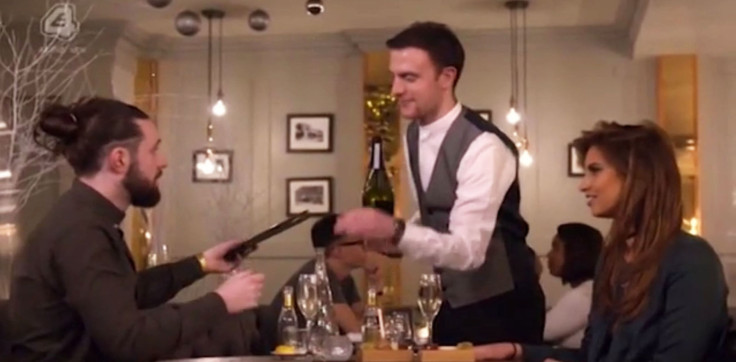No feminist expects a man to pay the bill on a date
All those who claim bitter, mean feminists want to rid the world of niceness and compliments miss the point.

What do we want? Equality! When do we want it? After a man has held the door open and paid for dinner! Said no feminist ever.
Yet still the notion that conniving, greedy women's rights activists are trying to both maintain and dismantle different forms of sexism to suit their own agenda persists. See, for example, notorious anti-feminist MP Philip Davis, who told a 'men's rights' conference that "feminist zealots want women to have their cake and eat it". Or check out the large number of popular internet memes that suggest women take advantage of 'chivalrous' behaviour like men holding doors for them, but 'cry discrimination' when it suits them.
Nowhere does this argument arise more heatedly than on the still contentious topic of splitting the bill on evenings out, particularly on first dates. A string of recent headlines prompted by dating television shows like First Dates and Celebs Go Dating has shown that controversy still rages on the subject, from criticism of men who expect to split the bill to outrage directed at women who allow men to pick up the full tab.
In reality, this is all far less complex than it is often made out to be. Feminists are not secretly trying to avoid paying for meals whilst taking down the rest of the patriarchy. The idea that a man was expected to pay the bill on a date originally derived from the reality that men were independent, working people with their own salaries, while women were expected to stick to the domestic sphere, thus having little income of their own to chip in. Not to mention the harking back to patriarchal norms where a man would choose the venue, set the date, and probably even dictate what the woman should eat so she didn't have to worry her pretty little head about the menu.
Feminists would much rather equal workplace rights and a closed gender pay gap (with flexible working hours and affordable childcare while we're on the subject) to allow us the means to pay for our own meal, thank you very much. In the grand scheme of things, all that seems somewhat more substantial than a sneaky free steak every once in a while.
Meanwhile, some women might choose to pay the full bill on a first date, and others might allow their companion to pay, but the weight of judgement they face as a result suggests that this is far from the great female boon it is often painted to be. Just look at the vitriol aimed at Ferne McCann after she allowed her date to pick up the bill on Celebs Go Dating, with online commentators accusing her of being "high maintenance", and Twitter users describing her as a "bigheaded bit of nothing", and "definitely not a lady".
Feminists would much rather equal workplace rights and a closed gender pay gap to allow us the means to pay for our own meal, thank you very much.
Given the 'not proper women' label often aimed at independent women, this begins to suggest that we can't win either way. Ironically, this is the very opposite of having our cake and eating it.
What's worse, a majority of the criticism aimed at McCann focused on how she chose not to see the man in question again after having allowed him to pay the bill. "Poor dude, she knew she was going to bin him and still let him pay", read one typical tweet. Here we get to the real crux of the issue. Like so many forms of so-called 'benevolent' sexism, there is a nasty undercurrent lurking beneath the surface.

The clear message here is that a man who pays the bill is somehow buying more than just food – he is also purchasing a certain sense of sexual entitlement to his date. A woman who lets a man pay for her meal, the comments suggest, then somehow owes him something of herself, whether that might be a follow-up meeting or a sexual encounter.
The underlying misogyny comes out startlingly clearly in one tweet, which reads: "£175 for dinner and drinks and she's never gonna see him again... Ferne would be getting dropped kicked on the throat". How quickly apparently 'chivalrous' ideas can turn to criticism, and then to references of violence against women.
The real problem with the notion of 'chivalry' is that it is a mixture of sexism and politeness, and the polite part is used to mask the sexism.
The real problem with the notion of 'chivalry' is that it is a mixture of sexism and politeness, and the polite part is used to mask the sexism. All those who claim bitter, mean feminists want to rid the world of niceness and compliments are missing the point. Nobody is suggesting that we should stop being nice to one another. Nobody is saying you can't give someone a compliment, or hold open a door. But those things shouldn't be dictated by sex.
It's nice to hold the door for another person. It's kind to give up your seat to somebody else who needs it more. Sometimes people like to offer to get the bill. But none of these things has to be done exclusively by men for women, nor should the reason be because women are considered weak and unable to do anything for themselves. We can unwind the sexism from the civility without throwing the baby out with the bath water.
Laura Bates is the founder of the Everyday Sexism Project
© Copyright IBTimes 2025. All rights reserved.




















